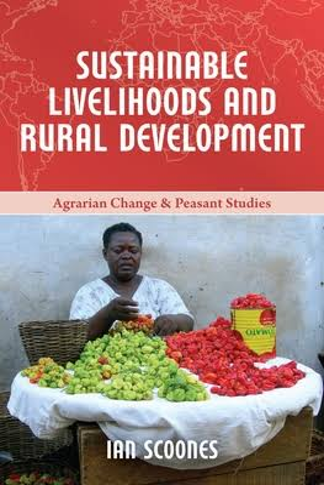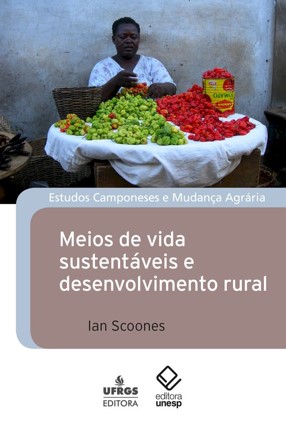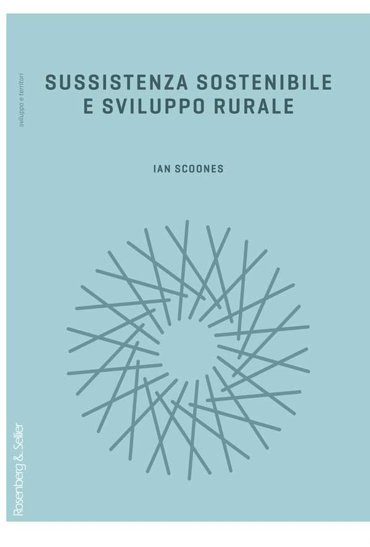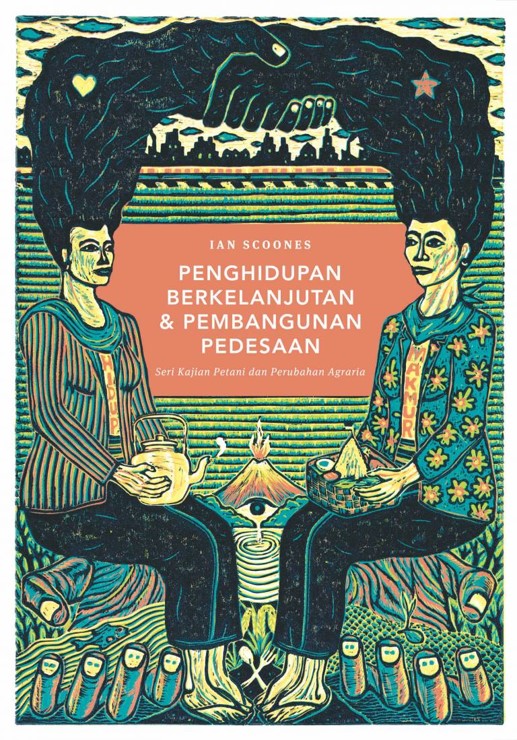Source: Eight conversations about sustainable livelihoods and rural development | zimbabweland
Prompted by some new translations, I have discussed my short book Sustainable Livelihoods and Rural Development at eight different sessions over the past few months. Coming on the back of a podcast recorded in South Africa that was released earlier in the year, it has been interesting to compare responses from quite different audiences in Brazil (online), Germany and Italy and as part of a podcast discussion in Indonesia.
The sustainable livelihoods approach is now over 30 years old, emerging around the time of the classic IDS Discussion Paper by Robert Chambers in Gordon Conway in 1992. But the appeal of the approach as an integrative framework going beyond sectoral siloes for thinking about how people make a living remains. There have been many critiques of course, some of which I addressed in the 2015 book, as I tried to link the original thinking to debates in agrarian studies and political economy. But I think the core ideas remain important, useful to students, academic researchers, activists and policymakers alike. This feeling was most definitely reinforced by all the conversations in different ways.
The original book in English is now available as an open access edition, along with many others in the amazing small books for big ideas book series on agrarian change and peasant studies from Practical Action Publishing. The books are short, accessible and now are being translated into many languages thanks to the tireless efforts of the lead series editor, Jun Borras. As well as in English, Sustainable Livelihoods and Rural Development is now available in Spanish, Italian, Japanese, Portuguese and Bahasa Indonesian (see links below), and soon in Arabic, Chinese, Burmese, Russian and Turkish I understand.
Some of the core concepts – like sustainability and livelihoods for instance – can be challenges for translators as there are so many competing meanings. But the translators have done a valiant job, and the discussions about key terms along the way have been extremely illuminating for me as the author in English. Translators I think should get much more credit as it is such a creative and difficult task.
It has been exciting to present the book again, more or less with the same talk, to such different audiences, with diverse experiences and backgrounds. New perspectives and debates emerged at each event, showing how relevant the basic arguments remain. This blog gives a very quick overview of the different sessions, identifying some key themes that emerged.
Book launches: reflections on the book from different perspectives
First at the online session in Brazil (organised by Lidia Cabral and Sergio Sauer), where we launched the Portuguese version of the book (soon also to be open access). Thanks go to Bernardo Mancano Fernandes and Sergio Schneider for coordinating publication across two presses and Regina Beatriz Vargas for the translation. The discussion centred on the role of livelihoods thinking for activists and social movements. It was interesting to learn that some in Brazil had run with the idea and adapted the approach to think about the political strategies required for transforming livelihoods, rethinking the original ‘organisations, institutions and policies’ element first presented in the 1988 framework.
Next in Germany at the Tropentag conference at Humboldt university in Berlin, there was an enthusiastic group of postgrad students together with some ‘old hands’ from the German aid agencies assembled for a pre-conference workshop on the book. Here the discussion focused on whether the challenge to sectoral thinking offered by livelihoods perspectives in the late 90s and early 2000s had stuck or whether approaches had reverted to type through bureaucratic defaults and declining funds and capacity within the aid system. Different views were offered, but the resonances of the livelihoods approach, it was felt, were still evident, even if framed by different buzzwords. The Sustainable Development Goals, for example, were seen (ideally, although not always in practice) to be an example of where an integrative, poverty-oriented livelihoods approach could be seen.
On to Italy and a fantastic tour from Turin to Florence to Rome to Cosenza and finally to Messina in Sicily was organised by the network of academics and activists involved in the book’s translation into Italian, and published by Rosenberg and Sellier. My ‘book tour’ was coordinated by Alessandra Corrado from Calabria University, together with the Italian PASTRES crew (thanks to Greta Semplici, Giulia Simula, Michele Nori and Matteo Caravani).
In Turin, the presentation was as part of a ‘Area and Global Studies for International Cooperation’ seminar series, linked to a new Masters’ associated with the Department of Cultures, Politics and Society. The discussions, chaired by Filippo Barbera and with roundtable contributions from Elisa Bignante, Alessandro Gusman and Paola Minoia, emphasised the importance of participatory methods in helping to define what livelihoods are and how livelihood and sustainability outcomes are defined by different people. Moving beyond an instrumental aid-focused framework, the opportunities of thinking about livelihoods from the bottom up were emphasised.
Next stop was Florence where the talk was hosted by the Department of Economics at the University of Firenze and was chaired by Giorgia Giovannetti, and with discussant commentaries from Luca Tiberti (UniFI) and Francesco Torrigiani (Oxfam). Sustainable livelihoods approaches were being taught in the department – which is more than can be said of many UK universities, where ‘livelihoods’ are seen as last year’s (or decade’s) thing such is the faddishness of development studies. The assembled economists offered interesting perspectives on the framework as a ‘model’ and we debated whether it could have ‘external validity’ or could be used to predict outcomes. Or, as was the original intention, whether it was only a simple heuristic aimed at asking open-ended questions and encouraging interdisciplinary conversations, including with and amongst economists.
The Rome discussions were once again hosted by another economics department (actually the Department of Statistical Sciences), this time at Sapienza University, and thanks to Carlo D’Ippoliti hosting. But not surprisingly, given the presence of many UN agencies in Rome, the audience included those who were interested in how the approach could be used in rethinking humanitarian approaches, food security, agricultural development and so on. Much debate centred on how difficult it was for large agencies to engage with a complex (if not complicated) interdisciplinary framework and how standard, old-style approaches too often prevailed.
As I moved further south, the conversations shifted to more sociological, anthropological and political science approaches, reflecting my departmental hosts rather than any geographic bias I think. The University of Calabria session, chaired by Alessandra Corrado, included a fascinating discussant’s commentary by the book’s translator, Marco Fama now from the University of Bergamo, which focused on philosophies of ‘development’ and the many challenges of decolonisation. We also discussed how the approach could apply in Calabria, where many of the challenges of out-migration, fragile agricultural livelihoods and state interventions affecting incentives were very similar to applications in the global south.
Finally, in Messina discussions chaired by Domenica Farinella took a more political turn with political scientists and sociologists interrogating how the approach can be situated within a wider political economy framing. My presentation emphasised the core arguments of the book, highlighting the importance of asking critical questions about agrarian dynamics, including the structuring forces of wider political economy. Italian political science it seems still takes Marx and of course Gramsci seriously and we had an engaged discussion about how such framings intersect, along with perspectives from Polanyi, Chayanov and others.
It was amazing how a similar short talk provoked such diverse debates, but in each location the book generated really interesting responses and I learned a lot.
An exciting Indonesian podcast experience
Stimulating discussion was also my experience in a podcast that I recorded with Gita Wirjawan, the former investment banker, past Minister of Trade of Indonesia, and well-known public intellectual and podcast host as part of his (rather embarrassingly titled) ‘Luminaries’ series of the well-known Endgame podcast. I hadn’t realised until the recording how popular the podcast was (it has tens of thousands of listeners) and I hadn’t quite gauged the format – a free-flowing and long conversation with Gita, who is a superb interviewer and excellent host. From my side, I was simply keen to share my appreciation and excitement about the publication of the Indonesian translation of the book by INSIST Press (translated by Nurhady Sirimorok, with publication coordinated by Lakshmi Savitri). This incidentally has the best cover of any edition, a superbly evocative image produced by Ucup, a member of Taring Padi artist collective in Yogyakarta.
Anyway, you can listen to the podcast yourself on youtube, Spotify, Apple Podcasts. Slightly awkwardly, it covers many topics beyond the book from my childhood and student inspirations to my views on climate transitions and politics (for this reason I haven’t listened to it again, but I am told it’s OK!). It was interesting how all the angles pursued by Gita connected to questions of livelihoods and sustainability – he and his team had done their homework in preparation – and I enjoyed the experience of situating the book in both my personal story and wider geopolitical debates. If you want more, there are youtube shorts and Instagram reels planned. It clearly is a very professional operation, very different to my other podcast experiences!
Overall, these eight very different conversations have been stimulating, challenging and educative. As one of my favourites, I think I like the book even more now!
English: https://practicalactionpublishing.com/book/2123/sustainable-livelihoods-and-rural-development (including OPEN ACCESS)
Italian: http://www.rosenbergesellier.it/ita/scheda-libro?aaref=1495
Portuguese: http://livraria.ufrgs.br/produto/15300/meios-de-vida-sustentaveis-e-desenvolvimento-rural
Japanese: https://akashi.co.jp/smp/book/b420384.html
Indonesian: https://insistpress.com/katalog/penghidupan-berkelanjutan-pembangunan-pedesaan/
This blog was written by Ian Scoones and first appeared on Zimbabweland




COMMENTS